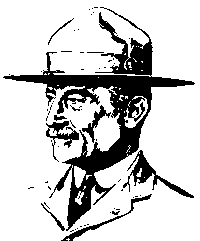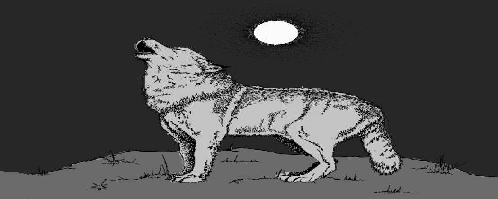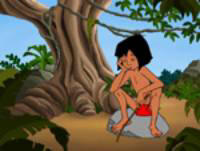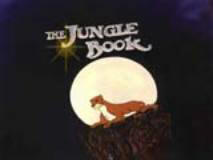A Brief History of Scouting
Baden-Powell went to school at Charterhouse. He did not do very well at his maths but he did enjoy acting, singing and playing goalie in the football team. His greatest love was to spend time in the woods near his school. He learnt to move silently to study the birds and animals and sometimes hid from his teachers! He used to snare rabbits and capture snakes and then sell them to his friends as pets.
When he was 19 he joined the army where he worked as a spy. He used to behave like a tourist fond of drawing butterflies, wild flowers and fish. His pictures however, to a trained eye, actually showed the positions of enemy forts with details of their guns.
In 1899 Baden-Powell was in Mafeking in South Africa with about 1,000 soldiers when he was besieged by a Boer Force nine times as large. For 217 days he was cut off but he kept Mafeking from being captured by using trickery to make the enemy think there were many more soldiers in the town than there actually were.
Whilst stuck in Mafeking, Baden-Powell had used young boys as massagers, lookouts and orderlies. This gave him an idea. Could he start a special movement to develop young people. After 33 years in the army he gave his life to starting a new movement which was to become the Scout Movement.
His first move was to try an experiment. He took 20 boys from London to a camp on Brownsea Island in Poole Harbour. The boys worked in four patrols called "The Bulls", "The Curlews", "The Ravens" and "The Wolves". The camp was a great success.
Baden-Powell went on to write a book called "Scouting for boys". It was published in six fortnightly parts and was snapped up by the youngsters up and down the country. In the next few years more and more Scout Troops opened as Baden-Powell's ideas spread.
All over the country, boys who were too young to be Scouts were showing interest in doing what their older brothers were enjoying so much. In 1916, Wolf Cubs were started for boys of 8 years old. Wolf Cubs worked in Sixes and did activities to win stars which were worn on their caps.
In 1920 the first World Jamboree was held. It took place at Olympia and showed how Scouting had already spread with Scouts from 21 countries attending. At the Jamboree, Baden-Powell become Chief Scout of the World.
When more than 80 years old and no longer
strong enough to tour round the country, Baden-Powell retired to
Kenya, a country which he loved. Here on January 8th 1941 he died.
retired to
Kenya, a country which he loved. Here on January 8th 1941 he died.
He will however live on in the hearts of the members of the Scout and Guide Movements that he founded
The Jungle Book
This is a short extract from the story written by Rudyard Kipling more than a hundred years ago.
CHAPTER ONE MOWGLI’S BROTHERS

Now Chil the Kite brings home the night That Mang the bat sets free – The herds are shut in byre and hut, For loosed at dawn are we. This is the hour of pride and power, Talon and tush and claw. Oh, hear the call! – Good hunting all That keep the Jungle Law!
Night-song in the Jungle
It was seven o’clock of a very warm evening in the Seeonee hills when Father Wolf woke up from his day’s rest, scratched himself, yawned, and spread out his paws one after another to get rid of the sleepy feeling in their tips.

Mother Wolf lay with her big grey nose dropped across her four tumbling, squealing cubs, and the moon shone into the cave where they all lived. ‘Augrh!’ said Father Wolf, ‘it is time to hunt again’; and he was going to spring downhill when a little shadow with a bushy tail crossed the threshold and whined: ‘Good luck go with you, O Chief of the Wolves; and good luck and strong white teeth go with the noble children, that they never forget the hungry in this world.
’It was the jackal – Tabaqui, the Dish-licker – and the wolves of India despise Tabaqui because he runs about making mischief, and telling tales, and eating rags and pieces of leather from the village rubbish-heaps. But they are afraid of him too, because Tabaqui, more than anyone else in the jungle, is apt to go mad, and then he forgets that he was ever afraid of anyone, and runs around biting everything in his way. Even the tiger runs and hides when little Tabaqui goes mad, for madness is the most disgraceful thing that can overtake a wild creature. We call it rabies, but they call it dewanee – the madness – and run.
‘Enter, and look,’ said Father Wolf stiffly; ‘but there is no food here.’
‘For a wolf, no,’ said Tabaqui; ‘but for so mean a person as myself a dry bone is a good feast. Who are we, the Gidur-log [the Jackal-People], to pick and choose?’ He scuttle to the back of the cave, where he found the bone of a buck with some meat on it, and sat cracking the end merrily.
‘All thanks for this good meal.’ he said, licking his lips. ‘How beautiful are the noble children! How large are their eyes! And so young too! Indeed, indeed, I might have remembered that the children of Kings are men from the beginning.
’Now, Tabaqui knew as well as anyone else that there is nothing so unlucky as to compliment children to their faces; and it pleased him to see Mother and Father Wolf look uncomfortable.
Tabaqui sat still, rejoicing in the mischief he had made and then said spitefully:
‘Shere Khan, the Big One, has shifted his hunting-grounds. He will hunt among these hills for the next moon, so he has told me.
’Shere Khan was the tiger who lived near the Waingunga River, twenty miles away.
‘He has no right!’ Father Wolf began angrily
– ‘By the Law of the Jungle he has no right to change his
 quarters
without due warning. He will frighten every head of game within ten
miles, and I – I have to kill for two, these days.’
quarters
without due warning. He will frighten every head of game within ten
miles, and I – I have to kill for two, these days.’
‘His mother did not call him Lungri [the Lame One] for nothing,’ said Mother Wolf quietly. ‘He has been lame in one foot from his birth. That is why he has only killed cattle. Now the villagers of the Wiangunga are angry with him, and he has come here to make our villagers angry. They will scour the Jungle for him when he is far away, and we and our children must run when the grass is set alight. Indeed, we are grateful to Shere Khan!’
‘Shall I tell him of your gratitude?’ said Tabaqui.
‘Out!’ snapped Father Wolf. ‘Out and hunt with thy master. Thou hast done harm enough for one night.’
‘I go,’ said Tabaqui quietly. ‘Ye can hear Shere Khan below in the thickets. I might have saved myself the message.
’Father Wolf listened, and below in the valley that ran down to a little river, he heard the dry, angry, snarly, singsong whine of a tiger who has caught nothing and does not care if all the Jungle knows it.
‘The fool!’ said Father Wolf. ‘To begin a night’s work with that noise! Does he think that our buck are like his fat Waingunga bullocks?’
‘H’sh! It is neither bullock nor buck that he hunts tonight,’ said Mother Wolf. ‘It is Man.’ The whine had changed to a sort of humming purr that seemed to come from every quarter of the compass. It was the noise that bewilders woodcutters and gipsies sleeping in the open, and makes them run sometimes into the very mouth of the tiger.
‘Man!’ said Father Wolf, showing all his white teeth. ‘Faugh! Are there not enough beetles and frogs that he must eat Man, and on our ground too?
’The Law of the Jungle, which never orders anything without reason, forbids every beast to eat Man except when he is killing to show his children how to kill, and then he must hunt outside the hunting-grounds of his pack or tribe. The reason for this is that man-killing means, sooner or later, the arrival of white men on elephants, with guns, and hundreds of brown men with gongs and rockets and torches. Then everybody in the Jungle suffers. The reason the beasts give among themselves is that Man is the weakest and most defenceless of all living things. They say too – and it is true – that man-eaters become mangy, and lose their teeth.
The purr grew louder, and ended in the full-throated ‘Aaarh!’ of the tiger’s charge.
Then there was a howl – an untigerish howl – from Shere Khan. ‘He has missed,’ said Mother Wolf. ‘What is it?’
Father Wolf ran out a few paces and heard Shere Khan muttering and mumbling savagely, as he tumbled about in the scrub.
‘The fool has had no more sense than to jump at a woodcutter’s camp-fire, and has burned his feet,’ said Father Wolf, with a grunt. ‘Tabaqui is with him.’
‘Something is coming uphill,’ said Mother Wolf, twitching one ear. ‘Get ready.’
The bushes rustled a little in the thicket, and Father Wolf dropped with his haunches under him, ready for his leap. Then, if you had been watching, you would have seen the most wonderful thing in the world – the wolf checked in mid-spring. He made his bound before he saw what it was he was jumping at, and then he tried to stop himself. The result was that he shot up straight into the air for four or five feet, landing almost where he left ground.
‘Man!’ he snapped. ‘A man’s cub. Look!’
Directly in front of him, holding on by a low branch, stood a naked brown baby who could just walk – as soft and as dimpled a little atom as ever came to a wolf’s cave at night. He looked up into Father Wolf’s face, and laughed.
‘Is that a man’s cub?’ said Mother Wolf. ‘I have never seen one. Bring it here.
’A wolf accustomed to moving his own cubs can, if necessary, mouth an egg without breaking it, and though Father Wolf’s jaws closed right on the child’s back not a tooth even scratched the skin, as he laid it down among the cubs.
‘How little! How naked, and – how bold!’ said Mother Wolf softly. The baby was pushing his way between the cubs to get close to the warm hide. ‘Ahai! He is taking his meal with the others. And so this is a man’s cub. Now, was there ever a wolf that could boast of a man’s cub among her children?’
The Moonlight was blocked out of the mouth of the cave, for Shere Khan’s great square head and shoulders were thrust into the entrance. Tabaqui, behind him, was squeaking: ‘My lord, my lord, it went in here!’
‘Shere Khan does us great honour,’ said
Father Wolf, but his eyes were angry. ‘What does Shere Khan need?
 My quarry. A man’s cub went this way,’ said Shere Khan. ‘Its parents have run off. Give it to me.
My quarry. A man’s cub went this way,’ said Shere Khan. ‘Its parents have run off. Give it to me.
’Shere Khan had jumped at a woodcutter’s camp-fire, as Father Wolf had said, and was furious from the pain of his burned feet. But Father Wolf knew that the mouth of the cave was too narrow for a tiger to come in by. Even where he was, Shere Khan’s shoulders and forepaws were cramped for want of room, as a man’s would be if he tried to fight in a barrel.
‘The Wolves are a free people,’ said Father Wolf. ‘They take orders from the Head of the Pack, and not from any striped cattle-killer. The man’s cub is ours - to kill if we choose.’
‘Ye choose and ye do not choose! What talk is this of choosing? By the bull that I killed, am I to stand nosing into your dog’s den for my fair dues? It is I, Shere Khan, who speaks!
’The tiger’s roar filled the cave with thunder. Mother Wolf shook herself clear of the cubs and sprang forward, her eyes, like two green moons in the darkness, facing the blazing eyes of Shere Khan.
‘And it is I, Raksha [The Demon], who answers. The man’s cub is mine, Lungri – mine to me! He shall not be killed. He shall live to run with the Pack and to hunt with the Pack; and in the end, look you, hunter of little naked cubs – frog-eater – fish-killer – he shall hunt thee! Now get hence, or by the Sambhur that I killed (I eat no starved cattle), back thou goest to thy mother, burned beast of the Jungle, lamer than ever thou camest into this world! Go!
’Father Wolf looked amazed. He had almost forgotten the days when he won Mother Wolf in fair fight from five other wolves, when she ran in the Pack and was not called The Demon for compliment’s sake. Shere Khan might have faced Father Wolf, but he could not stand up against Mother Wolf, for he knew that where he was she had all the advantage of the ground, and would fight to the death. So he backed out of the cave-mouth growling, and when he was clear he shouted:
‘Each dog barks in his own yard! We will see what the Pack will say to this fostering of man-cubs. The cub is mine, and to my teeth he will come in the end, O bush-tailed thieves!
’Mother Wolf threw herself down panting among the cubs, and Father Wolf said to her gravely:
‘Shere Khan speaks this much truth. The cub must be shown to the Pack. Wilt thou still keep him, Mother?’
‘Keep him!’ she gasped. ‘He came naked, by night, alone and very hungry; yet he was not afraid! Look, he has pushed one of my babes to one side already. And that lame butcher would have killed him and would have run off to the Waingunga while the villagers here hunted through all our lairs in revenge! Keep him? Assuredly I will keep him. Lie still, little frog. O thou Mowgli – For Mowgli the Frog I will call thee – the time will come when thou wilt hunt Shere Khan as he has hunted thee.’
‘But what will our Pack say?’ said Father Wolf…
What indeed will the Pack say? And who are Akela, Baloo and Bagheera? We hope this story has given you a little taster of The Jungle Book and that you will want to read the rest of the book.

To find out, you will have to read the book for yourself. Every Public Library should have a copy that you can borrow. Alternatively, you may be lucky enough to see the film or even to have a copy of the video. But you will never, ever, beat the book.

